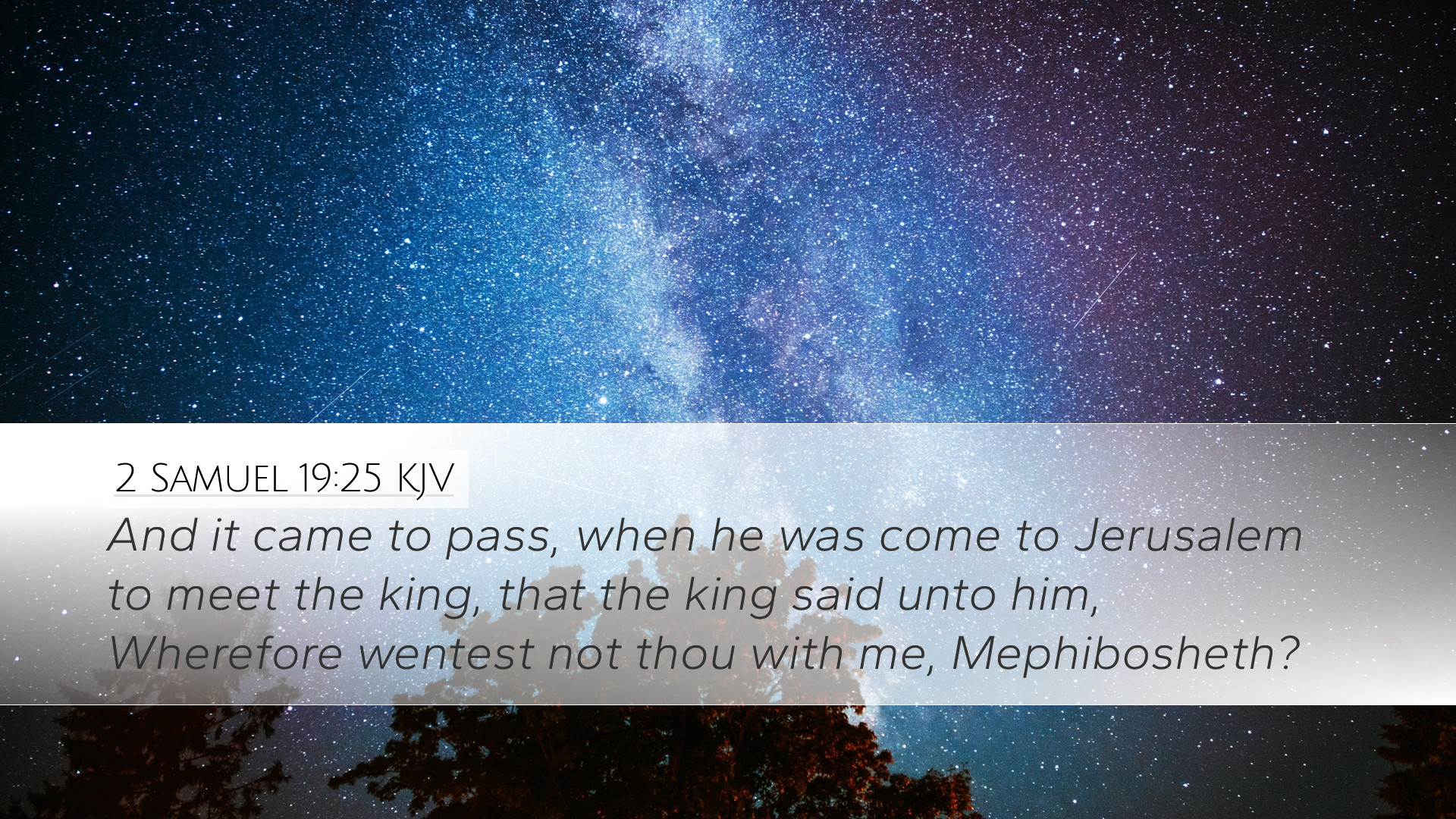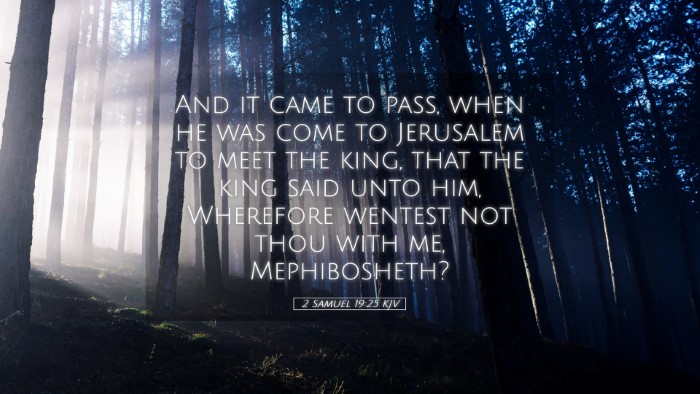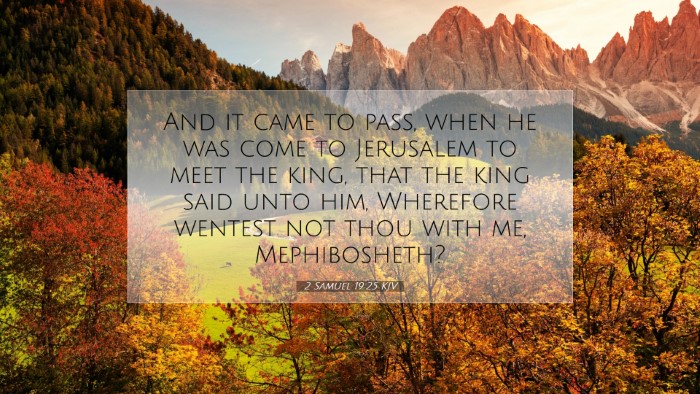Commentary on 2 Samuel 19:25
Bible Verse: "And it came to pass, when he was come to Jerusalem to meet the king, that the king said unto him, Why wentest thou not with me, Mephibosheth?" (2 Samuel 19:25 KJV)
Context and Background
2 Samuel 19:25 occurs in a pivotal moment following King David's return to Jerusalem after Absalom's rebellion. The verse introduces a conversation between King David and Mephibosheth, the son of Jonathan, who had been living in exile and expressed loyalty to David.
Analysis of the Text
- Historical Setting: The backdrop of this verse is crucial; Absalom's insurrection leads to David fleeing Jerusalem. After Absalom's death, the king returns, and reinvigorates relationships, particularly with those like Mephibosheth, whose loyalty was in question during David's absence.
- Character Study - Mephibosheth: Mephibosheth represents humility and dependability amid political turbulence. His disability, referenced in 2 Samuel 4:4, symbolizes not only his physical handicap but also the precariousness of his place in the royal court. Commentators highlight his status as a reminder of David’s covenant with Jonathan, his father.
Commentary Insights
Matthew Henry
Henry emphasizes the contrast between true loyalty and perceived betrayal. He notes that Mephibosheth’s actions were misrepresented—suggesting that when David was absent, Mephibosheth did not actively seek out the king's interests. This verse depicts a moment of vulnerability and confrontation, highlighting David's authority while examining themes of loyalty and misunderstanding amidst political strife.
Albert Barnes
Barnes elaborates on Mephibosheth’s defense, particularly focusing on his response to David's inquiry in verses that follow. He interprets David's questioning as significant, not merely as a king asserting his power, but as a father figure seeking clarity from a loyal subject. This relationship dynamic reinforces the theme of loyalty that runs throughout the narrative—true allegiance vs. political convenience.
Adam Clarke
Clarke dives deeper into the psychological implications of Mephibosheth’s circumstances. He emphasizes the emotional weight of the moment where David seeks an explanation. Clarke posits that Mephibosheth's disheartenment is palpable; he had remained behind not from neglect of duty but out of a sincere loyalty to David, indicating the emotional complexities in their relationship amid public scrutiny.
Theological Implications
- Covenantal Loyalty: The enduring friendship and covenant between David and Jonathan play a critical role in this narrative, reminding modern readers of the importance of covenant fidelity in their relationships.
- The Nature of Leadership: David’s approach in confronting Mephibosheth highlights the balance a leader must strike between exercising authority and demonstrating empathy towards those they lead.
- Misunderstanding and Conflict: The situation reflects how misunderstandings can arise during times of crisis, and how important it is for leaders and their followers to communicate clearly.
Conclusion
2 Samuel 19:25 serves as a rich passage that discusses themes of loyalty, misunderstanding, and the complexities inherent in human relationships, especially in leadership contexts. By examining the insights provided by Henry, Barnes, and Clarke, readers can gain a deeper understanding of the dynamics at play, providing valuable lessons for pastors, students, and theologians in navigating both personal and communal relationships within their own ministries and studies.


